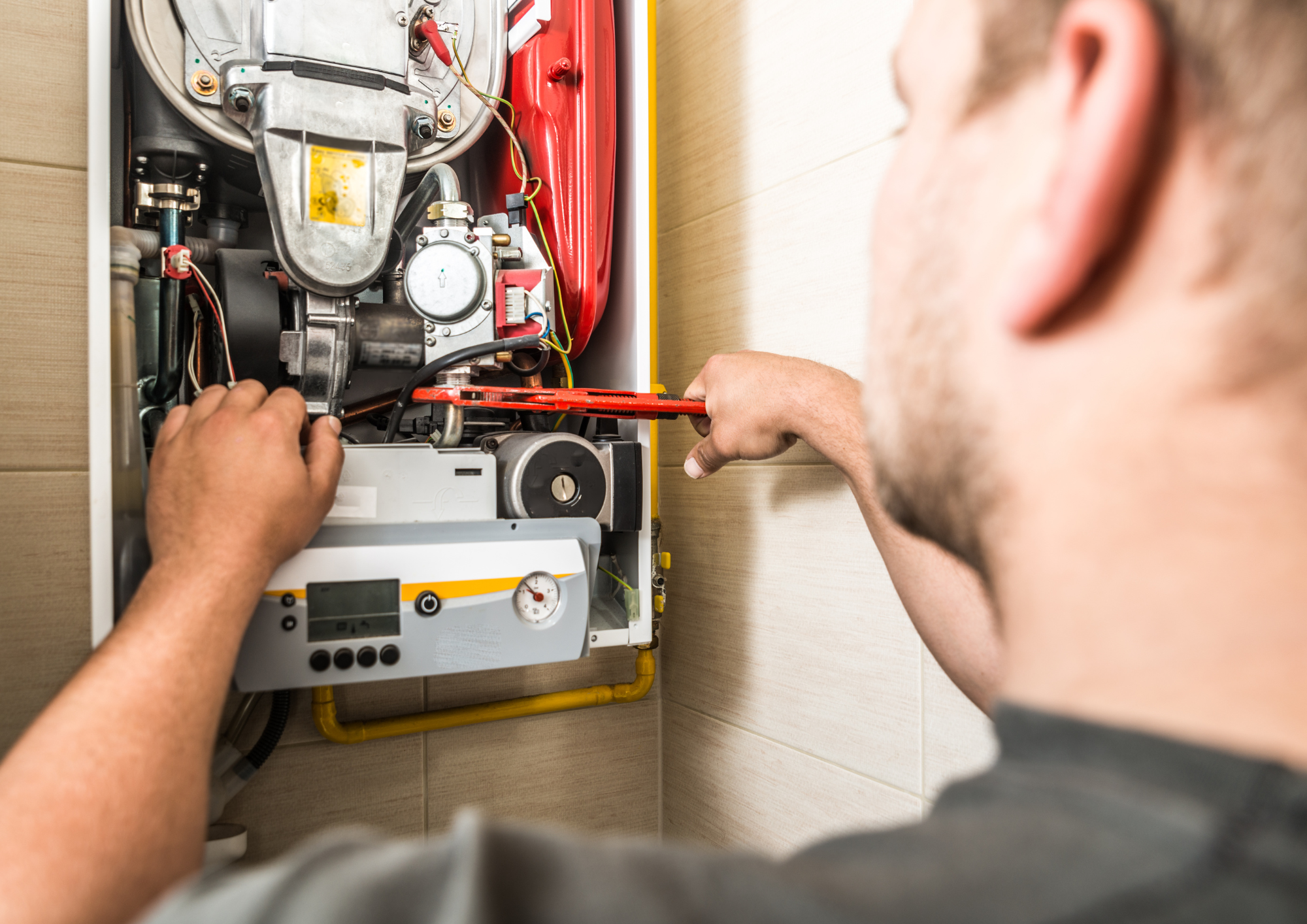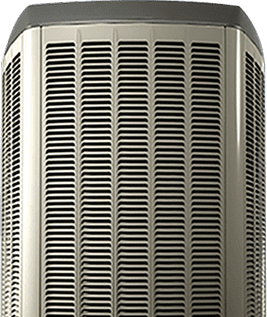Boiler vs Furnace

You don’t need to be an HVAC technician to know that your home includes multiple different systems to keep your household’s environment more comfortable. An air conditioner keeps your home cool (although you probably already knew that) but what heats your home? Homeowners have the option to heat their home with a furnace, heat pump, boiler, or geothermal system – but which is best? We break down the difference between the two most common sources of heating: the boiler vs. the furnace below.
What is a boiler?
A traditional boiler will use either oil or natural gas as a fuel source, not unlike a traditional furnace. A boiler will use heated water to generate either steam or hot water, which then travels through the pipes into radiators placed strategically throughout the home, such as baseboard radiators or radiant flooring systems. This means that the rooms in your home are heated radiantly without requiring the use of ductwork or fans.
What is a furnace?
Furnaces can be either natural gas, propane, oil, or electric-powered, and they heat the air that is circulating your home through the use of combustion or electricity. They heat up a heat exchanger or heating element. A strong fan, or blower, is used to pull air into the furnace and distribute it across the heating element, and then push it into the house through the duct systems (or registers, depending on which your home has.)
Because furnaces can be either gas, propane, oil, or electric, their exact efficiency can vary. Also, furnace maintenance requirements may vary, since there are so many different types. Ask an HVAC technician which type of furnace they recommend for your home.
Is it better to have a boiler or a furnace?
It really depends. Let’s assess a few different points of interest to compare the two.
Cost. The upfront cost of a furnace with its installation may be lower than it is with boilers. That being said, making a total comparison between the two’s monthly costs is difficult. Gas boilers can have around a 95% AFUE efficiency where the highest efficiency gas furnace can have around a 98.5% AFUE efficiency. However, the cost to heat your home can vary from region to region due to varying fuel costs. The total costs may also depend on the type of thermostat you use, the temperature you keep your home, insulation, and more.
Well, what about maintenance? To have maximum efficiency out of whatever system you use, it is advised that your heating system should be maintained annually. However, where furnaces require an air filter replacement once per every 1-3 months, boilers don’t need any hands-on maintenance. You can give them a once-over here and then, but it’s likely not necessary.
Not sure which one is right for your home? If so, we encourage you to schedule a consultation appointment with one of our home comfort advisors! Wardlaw Heating and Air Conditioning is available 24/7/365 days a year including after hours, weekends, and holidays at no extra charge to you! Furthermore, when purchasing a new unit for your home, make sure to ask us about our fantastic discounts and financing options!
Book a consultation appointment with Wardlaw Heating and Air Conditioning today! All consultations come with a complimentary new system purchase quote!
Why choose a boiler over a furnace?
What reason is there to choose a boiler over a furnace? Well, a boiler doesn’t use ductwork and therefore won’t circulate airborne pollutants, which can make it more appealing for households with allergies. It uses water/steam piping and a radiant system, which is draft-free, and requires less overall maintenance. However, they cost a little more upfront and can have some repair costs to do with freezing water pipes and leaking.
It depends on your individual situation. If you live with allergies and prefer less need to maintain your heating system, a boiler might be a good choice.
Is a boiler cheaper than a furnace?
Upfront, typically no. Usually, a boiler has a higher upfront cost, depending on the exact system, but the maintenance costs may vary. Boilers are associated with the potential issue of freezing pipes or ice damming, but they also don’t require the addition of a separate cooling system the way that furnaces do (which can add more to the total cost of the system.)
Boilers also don’t require air filters, which are a little ongoing cost that you will be responsible for if you have a furnace. Plus, there’s the added responsibility of having to ensure you are frequently replacing your air filters and making sure that they aren’t getting too dusty/blocking air flow. Boilers don’t have that maintenance requirement and are actually relatively very low maintenance overall.
Do you have a furnace if you have a boiler?
Your home most likely has a furnace if it has air vents or ducting. If you don’t have this, you probably have a boiler and either baseboard or full-size radiators. It’s usually one or the other, and very seldom both. Both can (technically) exist in a larger home or even a commercial structure with a complicated heating system.The combination is known as a dual heating system, and it offers a diverse method to assure everyone’s interior comfort.
Combining the systems enables homes to capitalize on the strengths of each system. A boiler’s radiant heat, for example, can produce a cozy ambiance, whereas a furnace’s forced-air system can swiftly elevate the inside temperature. This adaptability is especially beneficial in areas prone to harsh weather.
It is worth mentioning, however, that having two systems can be more difficult to install and maintain, as well as having greater upfront expenses. If you’re thinking about installing a dual heating system, we highly recommend talking to a Home Comfort Advisor for a complimentary in-home estimate and details about financing. Schedule your consultation today!
